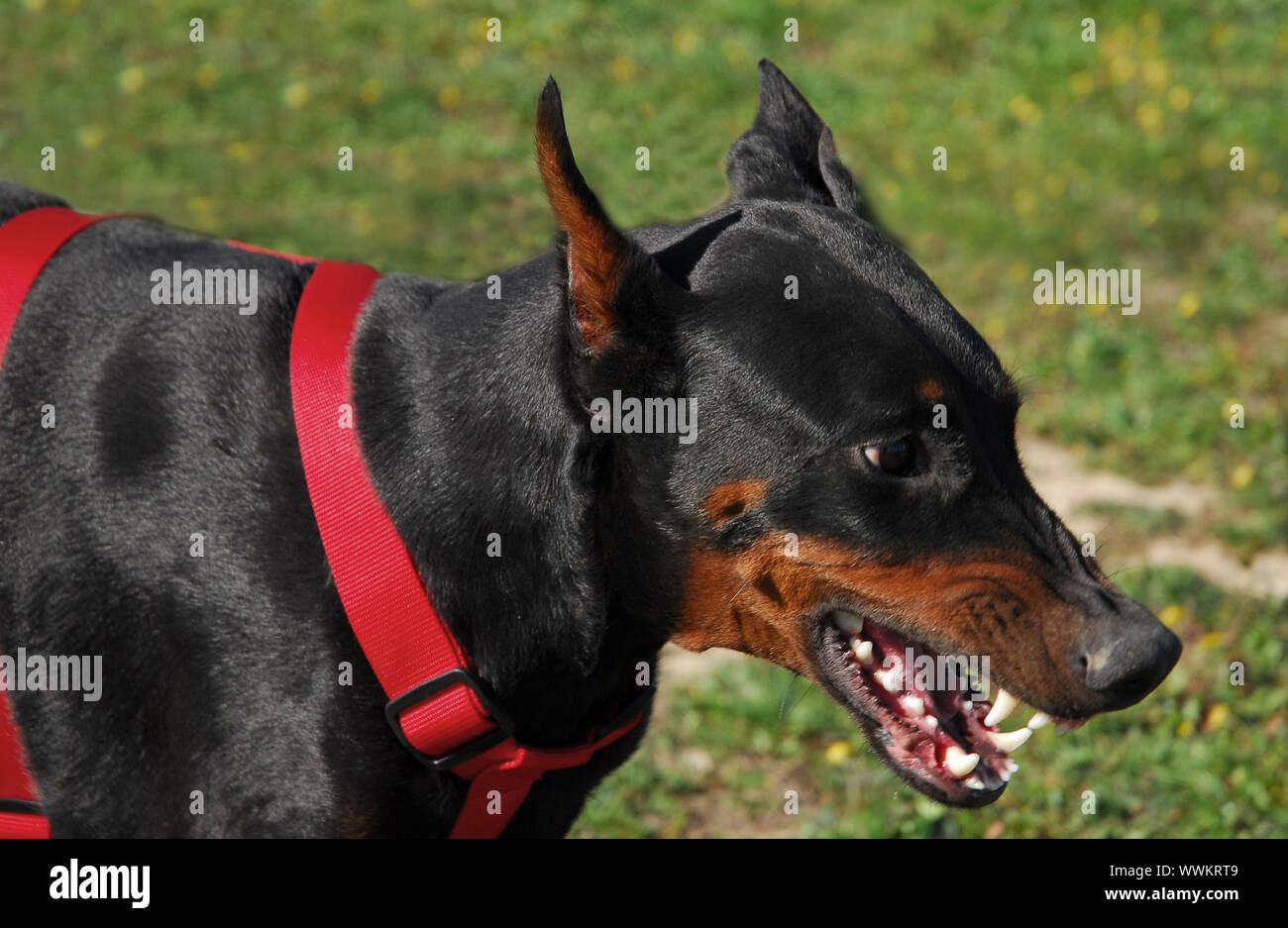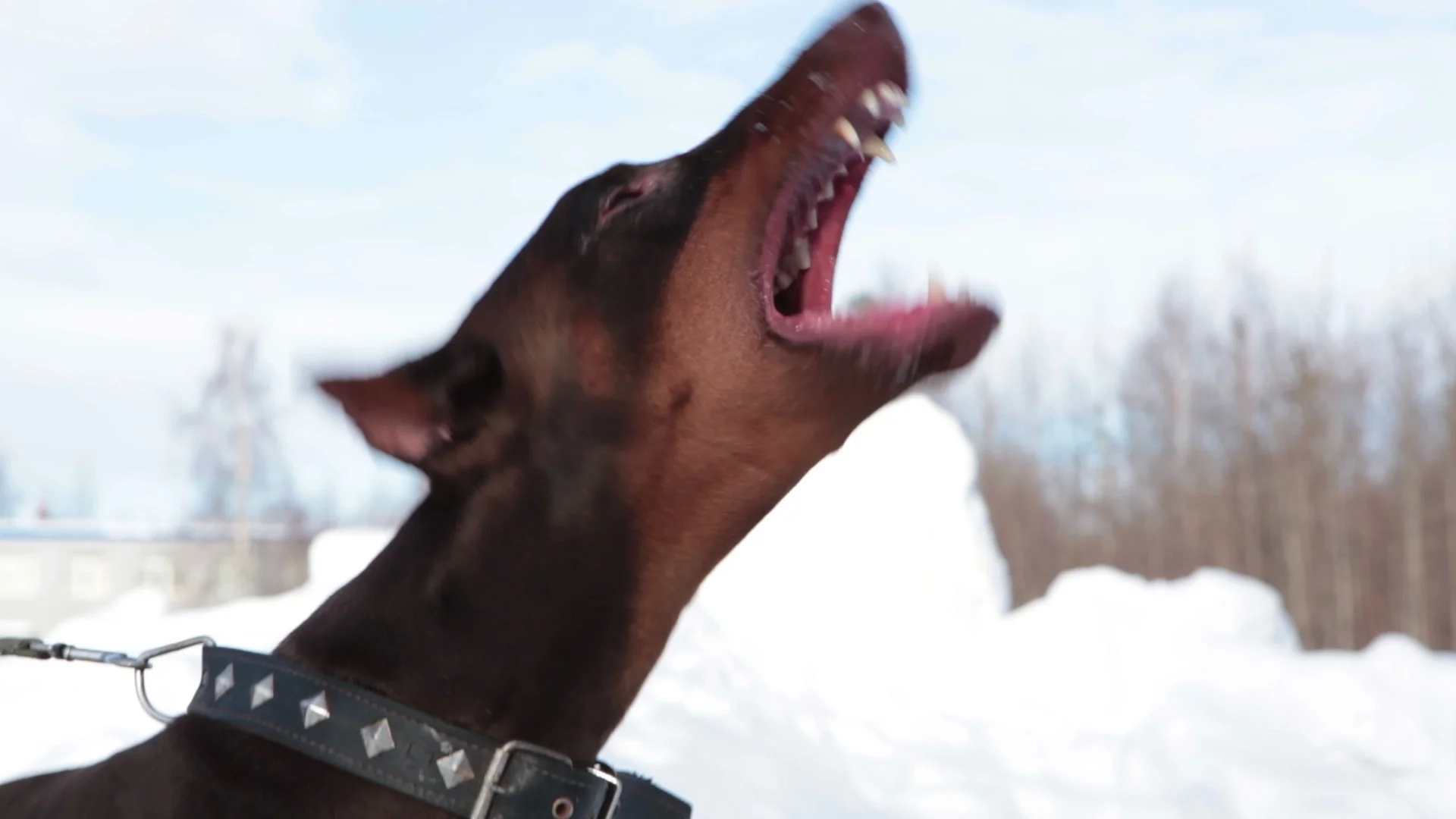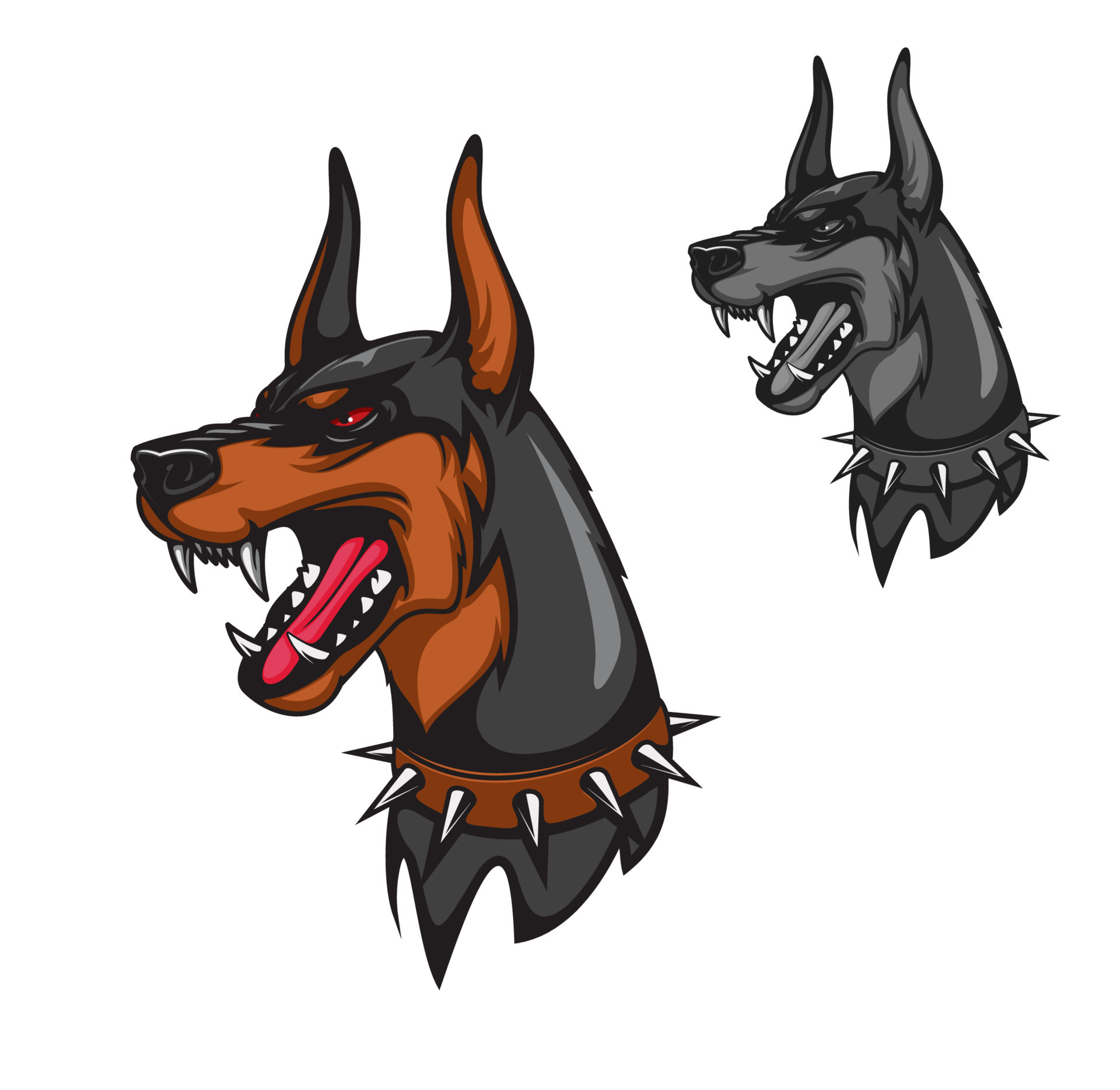Doberman dogs are often perceived as aggressive, but is this reputation deserved? The truth is more nuanced than you might think. While Dobermans are known for their protective instincts, their behavior can be shaped by training, socialization, and environmental factors. Understanding why Dobermans may exhibit aggressive tendencies is the first step toward fostering a harmonious relationship with these loyal companions.
Doberman Pinschers have long been admired for their intelligence, loyalty, and protective nature. However, misconceptions about their aggression often overshadow their true character. In reality, aggression in Dobermans is not inherent but rather a result of specific circumstances. By delving deeper into their behavior, we can dispel myths and provide practical solutions for owners.
This comprehensive guide will explore the causes of Doberman dog aggressive behavior, effective training techniques, and expert advice to help you create a positive environment for your furry friend. Whether you're a first-time Doberman owner or a seasoned enthusiast, this article will equip you with the knowledge to address and prevent aggression in your dog.
Read also:Common Surnames In Mexico A Comprehensive Guide To Mexican Family Names
Table of Contents
- Introduction to Dobermans
- Myth vs. Reality: The Truth About Doberman Aggression
- Causes of Aggression in Dobermans
- Training and Socialization: Key to Managing Aggression
- Types of Aggression in Dobermans
- Expert Tips for Handling Aggressive Behavior
- Health Considerations and Their Impact on Aggression
- Doberman Breed Characteristics
- Preventing Aggression: Long-Term Strategies
- Conclusion: Building a Positive Relationship with Your Doberman
Introduction to Dobermans
Dobermans are a breed that originated in Germany in the late 19th century. They were developed by a tax collector named Karl Friedrich Louis Dobermann, who sought a loyal and protective companion. Over time, the breed has become known for its intelligence, strength, and loyalty. However, their reputation as aggressive dogs often precedes them.
Origins of the Doberman Breed
The Doberman Pinscher was bred to serve as a guard dog and companion. Their original purpose was to protect their owner from potential threats. This history has contributed to their protective instincts, which, when misunderstood, can manifest as aggression. Understanding their origins helps explain why Dobermans may exhibit certain behaviors.
Doberman Temperament
Dobermans are naturally intelligent and eager to please, making them highly trainable. However, their protective nature can sometimes lead to aggressive tendencies if not properly managed. Early socialization and consistent training are crucial in shaping their temperament and preventing aggression.
Myth vs. Reality: The Truth About Doberman Aggression
Many people believe that Dobermans are inherently aggressive, but this is a misconception. While they are protective, aggression is not a defining trait of the breed. Instead, it is often a result of poor breeding practices, lack of socialization, or inadequate training.
Common Misconceptions
- Dobermans are naturally aggressive.
- They are dangerous to strangers.
- They cannot coexist with other pets or children.
These myths are not supported by evidence. With proper care and training, Dobermans can be gentle, loving companions.
Reality of Doberman Behavior
Research from the American Temperament Test Society shows that Dobermans have a temperament test pass rate of 82.2%, indicating their suitability as family pets. Their aggression is often situational and can be managed with the right approach.
Read also:Comprehensive Guide To Dr Jeffs Canine Care Expert Tips For Your Furry Friend
Causes of Aggression in Dobermans
Aggression in Dobermans can stem from various factors, including genetic predisposition, environmental influences, and training methods. Understanding these causes is essential for addressing and preventing aggressive behavior.
Genetic Factors
Some Dobermans may inherit aggressive tendencies from their parents. Responsible breeders work to eliminate these traits by selecting dogs with stable temperaments for breeding.
Environmental Influences
Dobermans raised in unstable or stressful environments may develop aggressive behaviors. Lack of socialization, isolation, or exposure to negative experiences can contribute to this issue.
Training Methods
Harsh or inconsistent training techniques can exacerbate aggression in Dobermans. Positive reinforcement and reward-based training are more effective in fostering a well-behaved and confident dog.
Training and Socialization: Key to Managing Aggression
Proper training and socialization are critical in preventing and managing aggression in Dobermans. These processes help dogs develop confidence, trust, and appropriate social skills.
Importance of Early Socialization
Introducing Dobermans to various people, animals, and environments from a young age helps them become well-adjusted adults. This exposure reduces the likelihood of fear-based aggression later in life.
Effective Training Techniques
- Positive reinforcement: Rewarding desired behaviors with treats, praise, or play.
- Consistency: Establishing clear rules and boundaries.
- Patient guidance: Avoiding harsh punishment and focusing on constructive feedback.
Types of Aggression in Dobermans
Aggression in Dobermans can manifest in different forms, each requiring a specific approach. Recognizing the type of aggression your dog exhibits is the first step toward resolving it.
Protective Aggression
This type of aggression stems from a Doberman's natural instinct to protect its family and territory. While it can be managed, it is important to channel this behavior positively.
Fear-Based Aggression
Dobermans that exhibit fear-based aggression may react defensively when they feel threatened. Building their confidence through gradual exposure to new experiences can help alleviate this issue.
Redirected Aggression
This occurs when a Doberman's aggression is redirected toward an unintended target, such as another dog or person. Managing triggers and providing alternative outlets for energy can prevent this behavior.
Expert Tips for Handling Aggressive Behavior
Experts in dog behavior and training offer valuable insights into managing aggression in Dobermans. These tips can help owners address and prevent aggressive tendencies in their pets.
Consulting a Professional Trainer
Working with a professional dog trainer who specializes in Doberman behavior can provide personalized guidance and support. They can assess your dog's specific needs and develop a tailored training plan.
Using Positive Reinforcement
Positive reinforcement is a powerful tool for modifying behavior. By rewarding good behavior and ignoring or redirecting negative behavior, you can encourage your Doberman to adopt desirable habits.
Creating a Structured Environment
A predictable routine and consistent rules help Dobermans feel secure and reduce anxiety. This structure can minimize the likelihood of aggression caused by stress or confusion.
Health Considerations and Their Impact on Aggression
Physical and mental health issues can contribute to aggression in Dobermans. Identifying and addressing these underlying causes is essential for managing their behavior effectively.
Common Health Issues in Dobermans
Dobermans are prone to certain health conditions, such as heart disease, hip dysplasia, and hypothyroidism. These conditions can affect their behavior and may contribute to aggression if left untreated.
Behavioral Health Concerns
Anxiety, fear, and frustration can manifest as aggression in Dobermans. Addressing these emotional issues through training, medication, or behavioral therapy can improve their overall well-being.
Doberman Breed Characteristics
Understanding the unique characteristics of Dobermans can help owners better manage their behavior. These traits include intelligence, loyalty, and athleticism, which can be harnessed to prevent aggression.
Intelligence and Trainability
Dobermans are highly intelligent and eager to learn, making them excellent candidates for advanced training. Their ability to understand complex commands can be used to redirect aggressive tendencies.
Physical Attributes
Dobermans are athletic and energetic, requiring regular exercise and mental stimulation. Providing outlets for their energy can reduce the likelihood of aggression caused by boredom or frustration.
Preventing Aggression: Long-Term Strategies
Preventing aggression in Dobermans involves a combination of early intervention, consistent training, and ongoing care. These strategies ensure that your dog remains a well-behaved and loving companion throughout its life.
Starting Early
Puppy training and socialization are crucial for preventing aggression in adult Dobermans. Establishing a strong foundation of positive experiences and behaviors sets the stage for a harmonious relationship.
Maintaining Consistency
Consistent training and reinforcement of rules help Dobermans understand expectations and reduce confusion. This consistency fosters trust and strengthens the bond between owner and dog.
Conclusion: Building a Positive Relationship with Your Doberman
In conclusion, Doberman dog aggressive behavior is not an inherent trait but rather a result of specific circumstances. By understanding the causes of aggression and implementing effective training and socialization techniques, you can create a positive and harmonious relationship with your Doberman.
We encourage you to share your experiences and insights in the comments below. Your feedback can help other Doberman owners address and prevent aggression in their pets. Additionally, feel free to explore our other articles for more information on dog behavior, training, and care.
Remember, a well-trained and socialized Doberman can be a loving and loyal companion. With patience, dedication, and expert guidance, you can transform aggressive tendencies into positive behaviors. Start your journey today and discover the joy of owning a well-behaved Doberman.
References:
- American Kennel Club (AKC): Doberman Pinscher Breed Information
- American Temperament Test Society (ATTS): Temperament Test Results
- Journal of Veterinary Behavior: Understanding Canine Aggression


